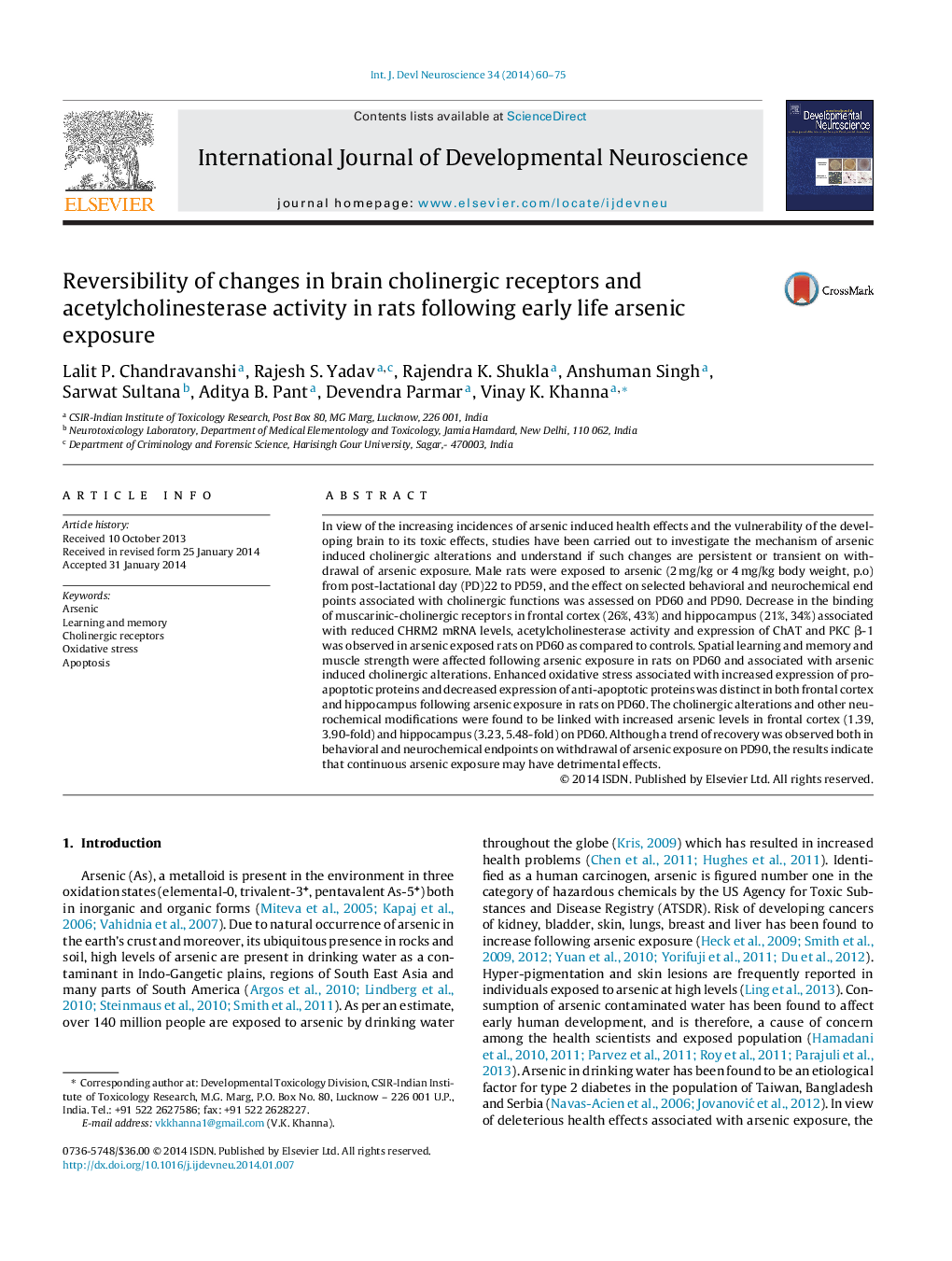| کد مقاله | کد نشریه | سال انتشار | مقاله انگلیسی | نسخه تمام متن |
|---|---|---|---|---|
| 2785943 | 1568397 | 2014 | 16 صفحه PDF | دانلود رایگان |
• Mechanism of arsenic induced cholinergic deficits investigated in rat brain.
• Arsenic causes neurobehavioral changes enhancing vulnerability of developing rats.
• Enhanced oxidative stress and apoptosis associated with brain cholinergic dysfunctions.
• A trend of recovery in neurobehavioral alterations observed on withdrawal of exposure.
• Continuous arsenic exposure at low doses may cause detrimental effects.
In view of the increasing incidences of arsenic induced health effects and the vulnerability of the developing brain to its toxic effects, studies have been carried out to investigate the mechanism of arsenic induced cholinergic alterations and understand if such changes are persistent or transient on withdrawal of arsenic exposure. Male rats were exposed to arsenic (2 mg/kg or 4 mg/kg body weight, p.o) from post-lactational day (PD)22 to PD59, and the effect on selected behavioral and neurochemical end points associated with cholinergic functions was assessed on PD60 and PD90. Decrease in the binding of muscarinic-cholinergic receptors in frontal cortex (26%, 43%) and hippocampus (21%, 34%) associated with reduced CHRM2 mRNA levels, acetylcholinesterase activity and expression of ChAT and PKC β-1 was observed in arsenic exposed rats on PD60 as compared to controls. Spatial learning and memory and muscle strength were affected following arsenic exposure in rats on PD60 and associated with arsenic induced cholinergic alterations. Enhanced oxidative stress associated with increased expression of pro-apoptotic proteins and decreased expression of anti-apoptotic proteins was distinct in both frontal cortex and hippocampus following arsenic exposure in rats on PD60. The cholinergic alterations and other neurochemical modifications were found to be linked with increased arsenic levels in frontal cortex (1.39, 3.90-fold) and hippocampus (3.23, 5.48-fold) on PD60. Although a trend of recovery was observed both in behavioral and neurochemical endpoints on withdrawal of arsenic exposure on PD90, the results indicate that continuous arsenic exposure may have detrimental effects.
Journal: International Journal of Developmental Neuroscience - Volume 34, May 2014, Pages 60–75
